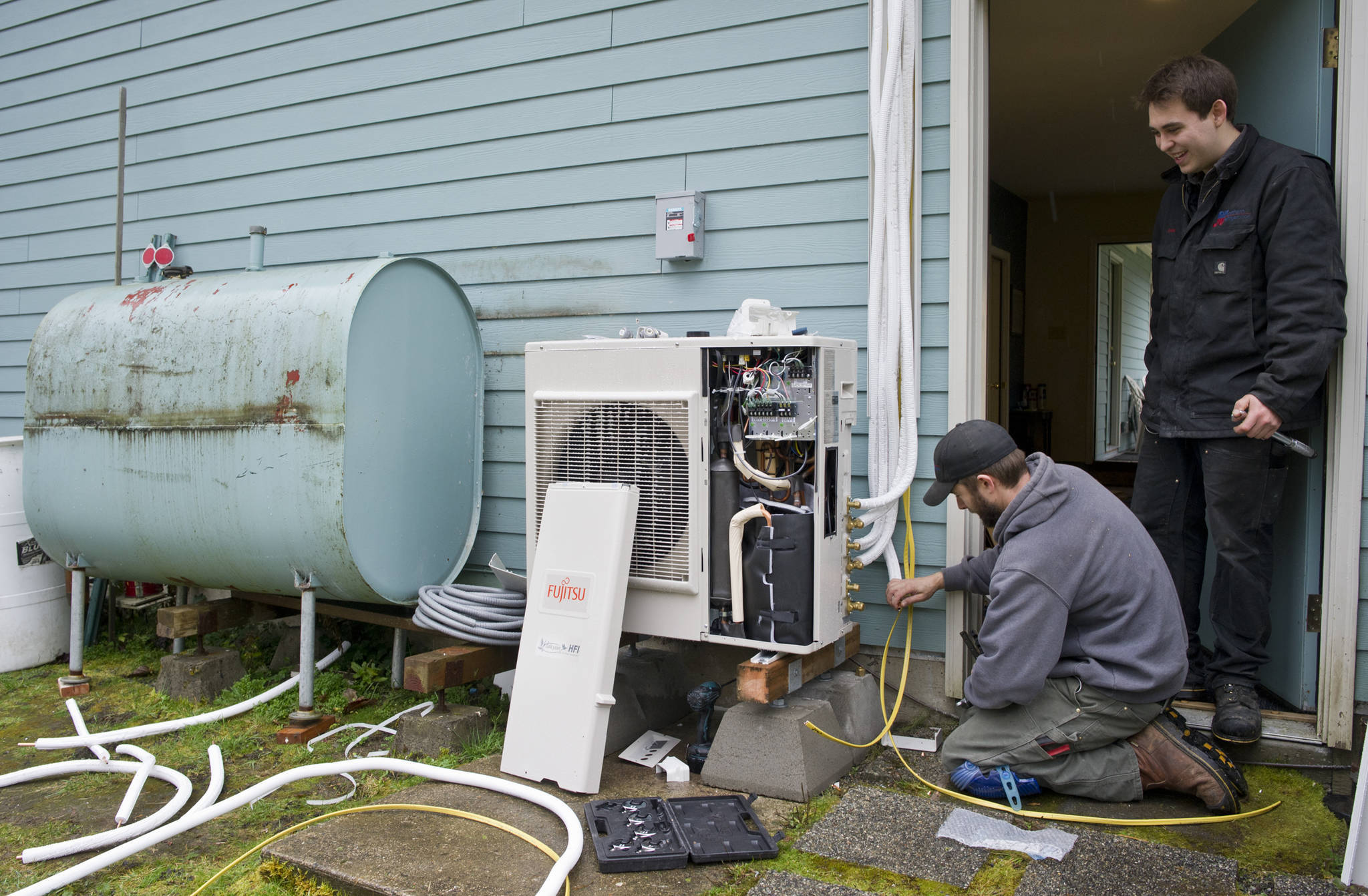With its electrical grid already almost entirely renewable, the push for clean energy in Juneau is less about production and more about consumption.
President Joe Biden campaigned on a promise to “Build Back Better” by investing in alternative energy infrastructure projects and the U.S. Department of Energy announced on Feb. 11 it was offering $100 million in clean energy research and development funding.
But Juneau’s power grid is already almost entirely renewable, according to vice president and director of energy services at Alaska Electric Light and Power Alec Mesdag. In a recent interview, Mesdag said power consumption levels haven’t changed that much in the past few years even though consumers have been buying more electric cars and other appliances that run solely on electricity.
[Want to keep energy costs down? Local experts make recommendations]
There are many reasons for that, Mesdag said, but one is that new and improved technologies are able to do the same or better as previous appliances with less energy consumption.
“Load-side technologies are absolutely key to our ability to reduce greenhouse emissions in the energy sector,” Mesdag said, referring to appliances and things that use electricity.
He gave the example of air-source heat pumps. Heat pumps are more efficient at generating heat than certain other types of home heating, he said, so when consumers install a heat pump or replace an old refrigerator with an energy-efficient one, that frees up power for other uses.
But one of the largest barriers to getting a heat pump is the installation cost, which can run between $4,000 and $5,000, according to Steve Behnke, president of Alaska Heat Smart, a Juneau-based nonprofit working to promote the use of heat pumps.
[Local nonprofit wants Juneau to pump up]
There are programs to help homeowners make energy saving renovations, Behnke said, but most of them are coming from the local level. Alaska Heat Smart is financed in part by the City and Borough of Juneau and in collaboration with a number of public and private entities, including AEL&P; Mesdag is the group’s vice president.
Alaska Heat Smart is trying to lower the cost of heat pump installation by buying in bulk. The group hopes to get 150 home owners together to agree to install heat pumps and negotiate a better price with installers. The program had received roughly 140 applications since its kickoff in December.
Behnke said Heat Smart and other groups were hoping to see federal programs that fund home energy upgrades, but it was too soon to tell. Federal funding for energy upgrades do exist, he said, but were fairly limited under the Trump administration.
“We’re hoping to be there when federal programs do pop up,” he said. “We’re hoping to have all the pieces in place.”
One of Biden’s campaign proposals is the establishment of so-called “green banks,” or financial institutions that make loans for clean energy projects, Behnke said, and that was something he hoped to see fulfilled. Alaska Heat Smart had partnered locally with True North Federal Credit Union for low-interest personal loans for heat pump installations, but Behnke said the program was limited and called it a “pilot project.”
Federal money is often appropriated to states who then allocate the money, Behnke said. But whether it comes from the state or the federal government, he said he hopes the programs will be flexible enough to cover home energy upgrades. However, it was likely to be over a year before any money will actually be available, he said.
For now, AEL&P is able to generate the power Juneau needs, but that may change in the future Mesdag said, depending on demand. If the company were to look to build another power generation source it would likely be another hydroelectric facility, he said. Southeast Alaska’s weather and steep terrain makee resources like wind or solar power either unworkable or too costly, Mesdag said.
Currently, there were no plans to build an additional power generation source Mesdag said, but if AEL&P were to provide power to the proposed Norwegian Cruise Line dock, then another source would be needed.
Other areas of the state and country are looking at converting their electrical grids, Mesdag said, but in Juneau the issue is different.
“(Other regions) really are talking about replacing resources, in Juneau we’re talking about how do we bring more renewable resources in.”
Contact reporter Peter Segall at psegall@juneauempire.com. Follow him on Twitter at @SegallJnuEmpire.

